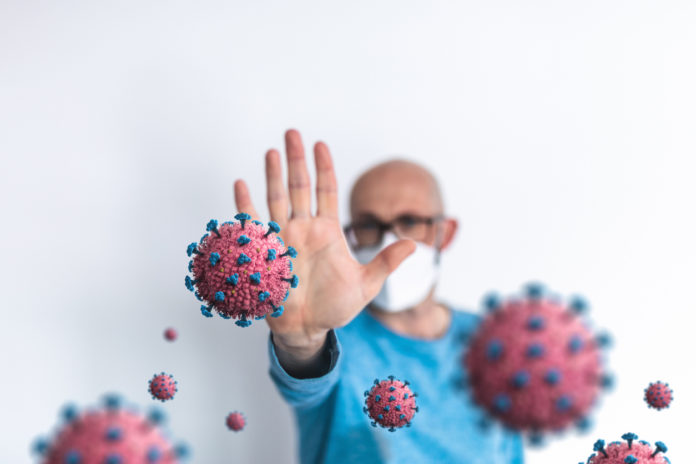Vital information on how COVID-19 spreads though communities will soon be gleaned from a real-life trial of The University of Queensland-led Safe Blues program and app.
As part of the trial, the mobile phones of volunteers at the University of Auckland will be ‘infected’ with virtual tokens from 1 May 2021, with the digital ‘pathogens’ spreading the way a contagious disease would.
UQ’s Associate Professor Yoni Nazarathy said he was thrilled the trial would be rolled out, as it would offer valuable and timely data for COVID-19 policymakers dealing with the pandemic.
“After many months of research, our ‘virus-spreading’ app is finally kicking off – this virtual, safe ‘virus’ experiment is the first of its kind,” Dr Nazarathy said.
“Between 300 and 1,100 participants – students and staff – will spread virtual virus-like tokens in Auckland, allowing us to emulate how COVID-19 policy adjustments affect viral spread in real time.
“We’ll be able to virtually modify social distancing rules with volunteers in the field, seeing what genuinely works and what really doesn’t.”
Participants on the University of Auckland campus will install the Safe Blues app and then go about their standard day-to-day activities.
The app runs in the background of their Android phone, with Bluetooth technology spreading tokens – aka the ‘virus’ – to other volunteers’ phones.
This is similar to a computer simulation of virus spread, except that the physical mobility of individuals is real.
Participants’ information is completely anonymised, and the app is otherwise benign on their phones.
“We’ll soon have a much better idea about the effectiveness of our Safe Blues mathematical framework – providing future epidemiologists with real anonymised datasets of participants’ physical proximity,” Dr Nazarathy said.
“Ideally, we believe that Safe Blues can be incorporated by governments, and could make a significant contribution to the way that epidemic modellers see the world.
“In classic modelling, it’s hard to differentiate between factors like the biological properties of people, their physical contact and their behaviour attributes.
“Our experiment will help separate these variables, empowering epidemic modellers to develop better interventions that can balance health outcomes with more-liveable restrictions.”
Participating students will directly benefit from the experiment as well.
“Not only do they get to help protect the world from epidemics, but their participation offers them a chance to win multiple prizes, like iPad Pros, mobile phones, and FitBits,” Dr Nazarathy said.
“It’s the least we could offer – these busy uni students could make life safer and easier for millions around the world.”
Safe Blues is a joint project between researchers from UQ, The University of Auckland, The University of Melbourne, Cornell University, Columbia University, Massachusetts Institute of Technology, Macquarie University and Delft University of Technology.


